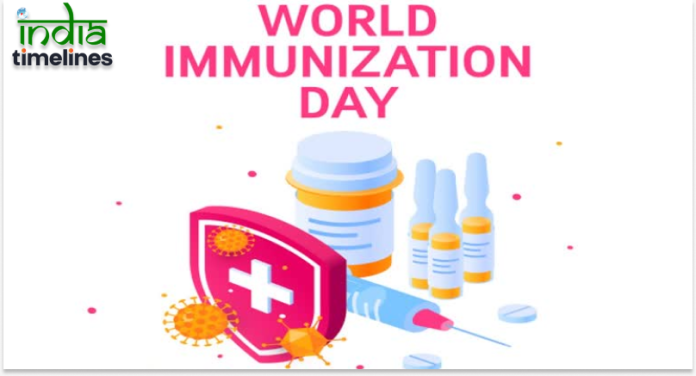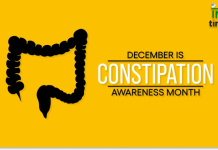
World Immunization Day, celebrated on November 10th, is a global event dedicated to promoting the importance of vaccination and raising awareness about its role in safeguarding public health. This day serves as a reminder of the tremendous achievements made in immunization and the work that still needs to be done to ensure that everyone has access to vaccines. In 2024, World Immunization Day carries even more significance as the world reflects on the impact of vaccination in the face of recent global health challenges.
History of World Immunization Day
World Immunization Day was established to commemorate the pivotal role vaccines play in preventing diseases and saving lives. The origins of this day can be traced back to the late 1990s when the World Health Organization (WHO) launched the Global Immunization Vision and Strategy (GIVS). This initiative aimed to increase vaccination coverage worldwide and highlight the importance of vaccines in disease prevention.
Key milestones in vaccination history include the development of the smallpox vaccine by Edward Jenner in the late 18th century and the introduction of vaccines for diseases such as polio, measles, and hepatitis. These breakthroughs have dramatically reduced the incidence of infectious diseases worldwide, showcasing the transformative power of vaccination.
The Importance of Vaccination
Vaccination is one of the most effective public health interventions, saving millions of lives each year. Vaccines protect individuals and communities from a range of infectious diseases, helping to control outbreaks and prevent epidemics. In 2024, the significance of vaccination is underscored by recent global health crises, including the COVID-19 pandemic, which highlighted the critical need for widespread immunization.
Statistics reveal that vaccines have led to a significant decline in diseases like measles, polio, and whooping cough. For instance, the global incidence of polio has decreased by over 99% since the launch of the Global Polio Eradication Initiative in 1988. These achievements demonstrate the power of vaccination in promoting public health.
Global Vaccination Initiatives
Organizations like the WHO and UNICEF play a crucial role in implementing vaccination programs around the world. Initiatives such as GAVI, the Vaccine Alliance, have been instrumental in providing vaccines to low-income countries, ensuring that vulnerable populations receive the protection they need.
Notable global vaccination campaigns, such as the Measles & Rubella Initiative and the Global Polio Eradication Initiative, have successfully increased vaccination coverage and reduced disease incidence. These efforts are vital in achieving global health targets and ensuring that no one is left behind.
Current Vaccination Landscape
Despite the progress made, challenges remain in achieving universal vaccination coverage. In 2024, vaccination rates vary significantly across regions, with some countries experiencing low immunization rates due to factors such as access barriers, misinformation, and vaccine hesitancy.
The COVID-19 pandemic has further exacerbated these challenges, disrupting routine immunization services and leading to a resurgence of vaccine-preventable diseases in some areas. Addressing these issues is critical to ensure that all individuals receive the vaccinations they need.
Immunization Myths and Misconceptions
Misinformation about vaccines poses a significant challenge to global immunization efforts. Common myths, such as the false claim that vaccines cause autism, can deter individuals from seeking vaccination for themselves and their children.
It is crucial to debunk these myths and provide accurate information about the safety and efficacy of vaccines. Addressing misconceptions can help build trust in vaccination programs and encourage individuals to participate in immunization efforts.
Vaccination and Children
Childhood vaccinations are particularly important, as they protect young individuals from serious diseases that can lead to hospitalization or death. The immunization schedule recommended by health authorities includes vaccines for diseases such as measles, mumps, rubella, polio, and hepatitis B.
In 2024, health organizations emphasize the importance of ensuring that children receive their vaccinations on time, as delays can leave them vulnerable to outbreaks. Parents and caregivers play a vital role in prioritizing their children’s health through timely immunization.
The Role of Healthcare Providers
Healthcare professionals are essential advocates for vaccination. They educate patients about the benefits of vaccines, address concerns, and encourage individuals to stay up to date with their immunizations. In 2024, the importance of patient education cannot be overstated, as informed patients are more likely to participate in vaccination programs.
By fostering an environment of trust and understanding, healthcare providers can help combat vaccine hesitancy and promote public health.
Vaccines and Emerging Diseases
The response to emerging infectious diseases relies heavily on vaccination. Vaccines can be developed rapidly in response to outbreaks, as seen during the COVID-19 pandemic, where mRNA vaccine technology was utilized to create effective vaccines in record time.
In 2024, the importance of vaccines in preventing pandemics is clearer than ever. Continued investment in vaccine research and development is crucial for preparing for future outbreaks and protecting global health.
Innovations in Vaccination
The field of vaccination is constantly evolving, with new technologies and approaches emerging. Innovations such as mRNA vaccines, which have shown remarkable efficacy during the COVID-19 pandemic, are paving the way for new strategies in vaccine development.
In 2024, researchers are exploring next-generation vaccines that may offer broader protection against multiple diseases and improve delivery methods. These advancements hold great promise for enhancing global immunization efforts.
Immunization Strategies for the Future
Looking ahead, global strategies to improve vaccination rates are essential. Efforts must focus on addressing barriers to access, enhancing public awareness, and promoting vaccine acceptance.
Technology also plays a vital role in immunization efforts, with mobile health apps and telemedicine facilitating vaccine delivery and education. By leveraging these tools, healthcare systems can improve access to vaccines and enhance overall immunization coverage.
Celebrating World Immunization Day
World Immunization Day serves as a platform for raising awareness about vaccination and encouraging participation in immunization programs. In 2024, global events and activities will bring communities together to celebrate the importance of vaccines in protecting health.
Individuals can participate by advocating for vaccination, sharing accurate information on social media, and supporting local immunization initiatives. Every action contributes to a healthier future.
Challenges to Global Immunization
Despite progress, significant challenges to global immunization efforts remain. Barriers to access, including geographic, economic, and social factors, hinder vaccine delivery in many regions.
Political instability and misinformation can also undermine vaccination campaigns, making it essential for governments and organizations to address these issues collaboratively.
The Future of Vaccination
The future of vaccination looks promising, with ongoing research and innovation shaping the landscape. Experts predict that vaccine research will continue to advance, leading to the development of new vaccines that provide greater protection against emerging diseases.
As global health priorities evolve, so too will the strategies employed to ensure that everyone has access to vaccines, promoting a healthier world for all.
Conclusion
World Immunization Day serves as a vital reminder of the importance of vaccines in protecting public health. As we celebrate this day in 2024, let us reflect on the progress made, the challenges that remain, and the collective responsibility we share to ensure that everyone has access to lifesaving vaccinations. Together, we can work toward a future where vaccine-preventable diseases are a thing of the past.




































Attractive section of content I just stumbled upon your blog and in accession capital to assert that I get actually enjoyed account your blog posts Anyway I will be subscribing to your augment and even I achievement you access consistently fast